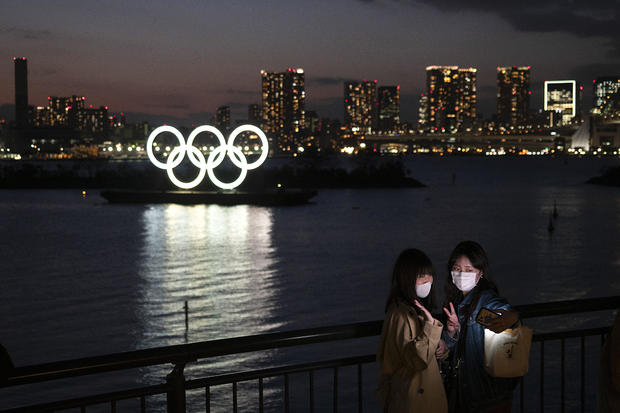Japan's 2020 Summer Olympics — and billions of dollars — threatened by coronavirus pandemic
The iconic Olympic flame lighting ceremony in Greece was closed to the public Thursday morning amid fears over the coronavirus. With the games less than four months away, some are concerned about what the global pandemic could mean for the fate of the 2020 Summer Olympics in Tokyo.
The new National Stadium, a $1.4 billion rebuilding effort for the city of Tokyo, may not see its debut as the grand centerpiece of the 2020 Olympics as mass gatherings are getting cancelled around the world. Some estimates show Japan, the world's third largest economy, stands to lose up to $75 billion in revenue if the games are called off.
"The probability of recession is very high," Jesper Koll, chief Japan economist at Wisdom Tree, told CBS News' Ramy Inocencio.
If the pandemic were to reach a point where cancelling the Olympics was necessary, he said, there would likely be bigger things to worry about than the games themselves - like a "global depression."
While Japan's Olympics Minister called cancellation or postponement "inconceivable," the global restrictions being put in place may pose a threat to Tokyo's billion-dollar preparations.
With major U.S. airlines cutting flights to Asia, air travel may turn more complicated. Narita International Airport and Haneda Airport both service Tokyo and have invested heavily into upgrades, expecting up to 2 million tourists flying in for the Olympics.
The famed Okura Tokyo Hotel, built in time for the 1964 Tokyo Olympics, spent an estimated $1 billion for a total remodel to accommodate the wave of tourists, along with a host of other hotels and Airbnbs that have already been booked at a premium.
Major companies have also poured an estimated $1.25 billion into the event in the form of advertisements and sponsorships. Exclusive rights to broadcast the Olympic Games cost a reported $1.4 billion.
U.S. Olympian Will Claye, who won two silver medals in the triple jump at the 2012 and 2016 Olympics respectively, has been training in Santa Monica, California for the upcoming games and said that athletes are being assured they are still on.
"I think the Olympics could show the world, and unite the world, and show everyone that things will be okay," Claye said. "We're coming together and we're gonna fight this thing."
The last time the Olympics were cancelled was in 1944, during World War II. If the 2020 Olympic Games were cancelled or postponed, it would be the first time because of a global pandemic.






